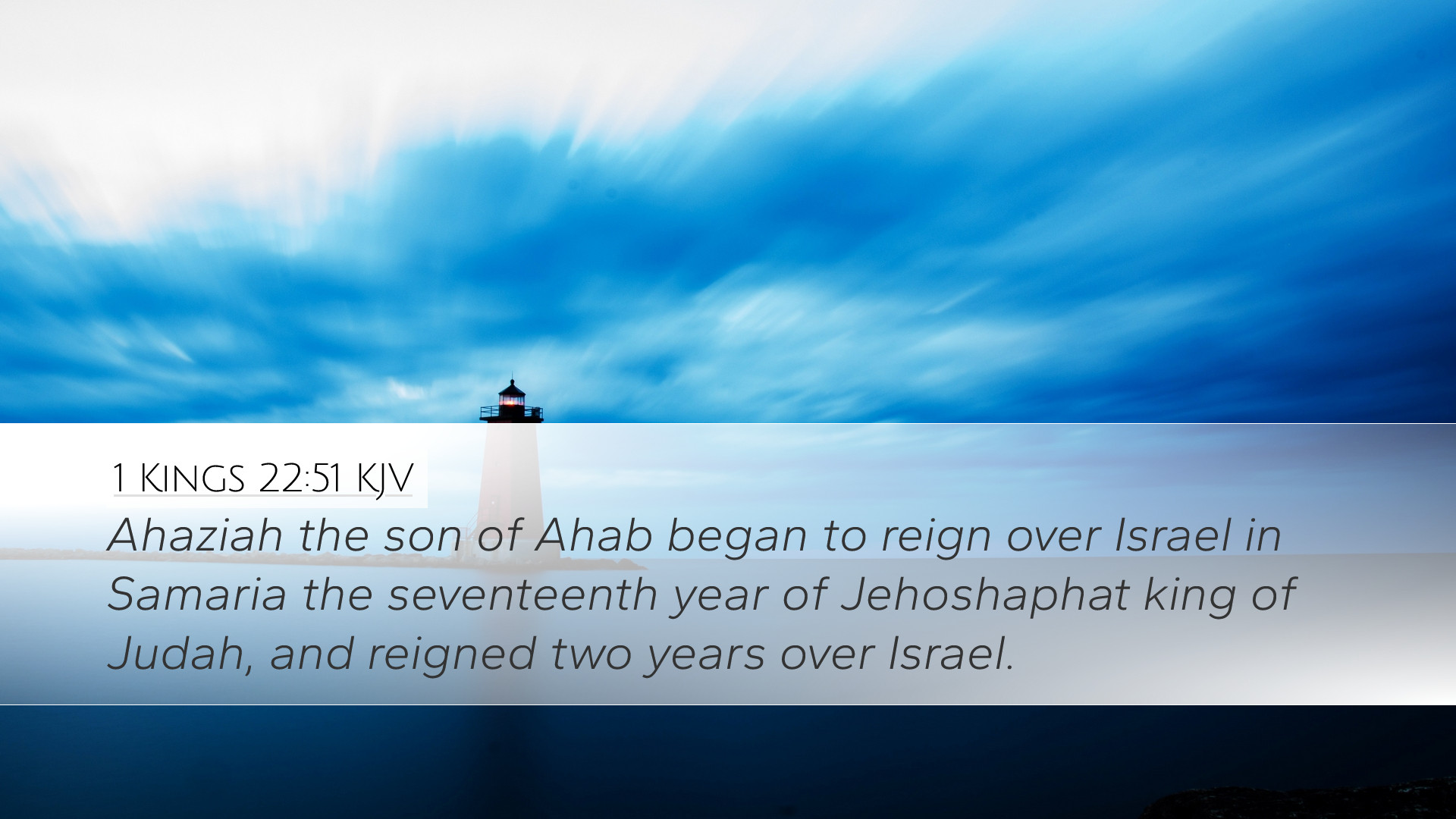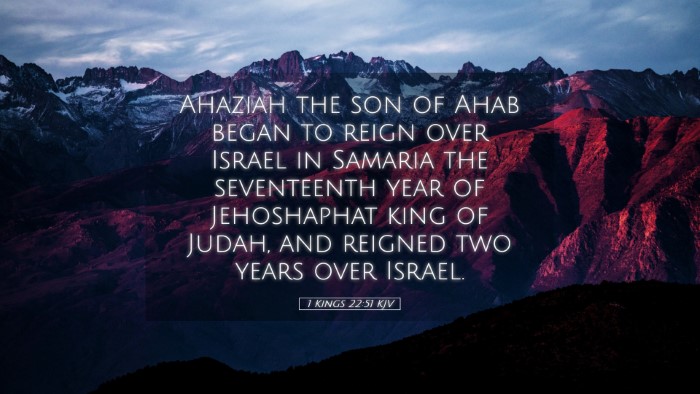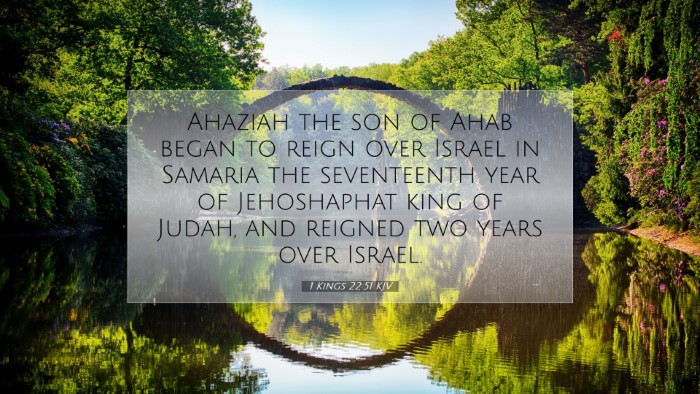Commentary on 1 Kings 22:51
"Ahaziah, the son of Ahab, began to reign over Israel in Samaria the seventeenth year of Jehoshaphat king of Judah, and reigned two years over Israel." (1 Kings 22:51, ESV)
Contextual Overview
This verse marks the beginning of King Ahaziah's reign over the northern kingdom of Israel, following the tumultuous era of his father, Ahab. This period is significant in biblical history, reflecting the ongoing tensions and spiritual decline of Israel, as well as the contrasting spiritual fidelity of Judah under Jehoshaphat.
Ahaziah's brief reign serves as a narrative pivot that underscores the prophetic voices and their warning against the prevalent idolatry and disobedience to Yahweh.
Insights from Matthew Henry
Matthew Henry observes that Ahaziah's ascent to the throne, being the son of Ahab, directly connects the legacy of Ahab's sinful actions to the character of Ahaziah. He emphasizes the negative characterization of Ahaziah's reign, which followed after a father infamous for his idolatry and confrontations with the prophets of Yahweh.
- Spiritual Influence: Henry notes the inherited spiritual decline from Ahab, which Ahaziah further perpetuated. He remarks, "Like father, like son" illustrates the generational impact of sin and rebellion against God.
- Historical Context: Henry points out the timing of Ahaziah's reign, emphasizing its overlap with Jehoshaphat's reign in Judah, a period of relative peace but also significant spiritual challenges.
Insights from Albert Barnes
Albert Barnes provides a detailed view of the political landscape of Israel and Judah during Ahaziah's reign, highlighting the fragility of Israelite leadership at this time. He notes that Ahaziah's rule was characterized by instability, as he ruled for only two years.
- Political Instability: Barnes cites that Ahaziah’s reign is noted for its brevity and the chaos that ensued, reflecting the consequences of Ahab's earlier decisions and alliances, particularly those with foreign powers.
- Faithfulness to God: Emphasizing the contrast with Jehoshaphat, Barnes illustrates how Ahaziah's reign was devoid of the spiritual commitments that marked the southern kingdom, making it a time of great spiritual darkness for Israel.
Insights from Adam Clarke
Adam Clarke provides a comprehensive theological interpretation of 1 Kings 22:51, linking Ahaziah's narrative to broader themes in the history of Israel. Clarke highlights the importance of prophetic validation in the historical accounts of Israel’s kingship.
- Prophetic Role: Clarke notes how the prophetic voices of the time, particularly Elijah and Elisha, frame the narrative of kings, indicating that Ahaziah’s reign was under the looming judgment of God due to his lineage and idolatrous practices.
- Instructional Value: Clarke stresses that the brevity of Ahaziah's reign serves as a cautionary tale for future leaders, emphasizing the crucial need for adherence to God’s commandments and the dangers of following a legacy of sin.
Theological Reflection
From a theological perspective, 1 Kings 22:51 illustrates the ongoing struggle between righteous leadership and sinful heritage. The text invites reflection on how familial and societal influences shape our spiritual identities and the dire consequences of premature leadership.
- Legacy of Sin: The verse serves as a poignant reminder that leadership is often affected by previous generations, compelling pastors and theologians to consider the long-term impact of their own leadership on future generations.
- Call to Righteousness: In light of this reign, there is a call to cultivate a culture of righteousness that honors God, challenging leaders today to seek divine wisdom and guidance in their governance.
Conclusion
1 Kings 22:51 encapsulates not just the political arena of ancient Israel, but also offers profound spiritual insights that remain pertinent today. The combined reflections from Matthew Henry, Albert Barnes, and Adam Clarke provide depth and application to a contemporary audience of students, pastors, and scholars, reminding them of the importance of leadership aligned with God’s will. Understanding the implications of Ahaziah’s reign encourages an examination of one’s own faithfulness and the consequences of collective disobedience to God.


